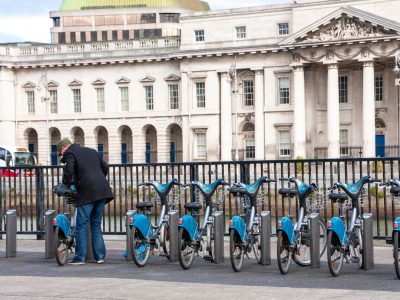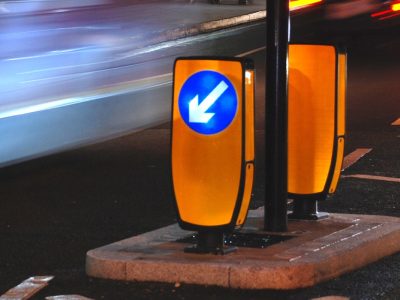On the streets of Europe’s iconic cities, a revolution is quietly underway. From Paris to Barcelona to Brussels, authorities are spearheading diverse strategies to combat congestion and pollution, reclaiming urban spaces for their original purpose: as vibrant hubs of human interaction and activity.
In an insightful piece titled “Bollards and ‘superblocks’: how Europe’s cities are turning on the car,” Guardian writers Jon Henley, Stephen Burgen, and Lisa O’Carroll delve into the multifaceted approaches adopted by European cities to tackle the pressing issues of traffic congestion and environmental degradation.
The article paints a vivid picture of a continent grappling with the legacy of car-centric urban planning. Most European cities, steeped in history and designed long before the automobile era, once thrived as centers of diverse human endeavors. However, the mass proliferation of cars in the 20th century transformed these vibrant spaces into mere conduits for vehicular traffic, stripping away their vitality and charm.
Today, confronted with the urgent imperatives of curbing air pollution, mitigating the climate crisis, and enhancing residents’ quality of life, European cities are charting a new course, with innovative strategies deployed to recalibrate the balance between cars and alternative modes of transportation.
In Paris, under the stewardship of Mayor Anne Hidalgo, a pioneering spirit prevails. Bold initiatives such as the closure of major thoroughfares to traffic, the expansion of bike lanes, and the implementation of low-emission zones have led to a remarkable decline in car usage. Hidalgo’s vision of a “15-minute city,” where daily needs are within walking or cycling distance, embodies a transformative approach to urban planning.
Similarly, Barcelona has embarked on a journey towards sustainable mobility under the guidance of forward-thinking leaders like Ada Colau and Jaume Collboni. The city’s innovative “superblock” scheme, which prioritises pedestrians and cyclists over cars, reflects a commitment to reclaiming public space for communal use. Despite challenges, such as high car density and entrenched cultural attitudes, Barcelona remains steadfast in its pursuit of a greener, more livable urban landscape.
Meanwhile, in Brussels, efforts to reduce car dependency are gaining traction despite bureaucratic hurdles and fragmented governance structures. Through a combination of traffic-calming measures, pedestrianisation initiatives, and investment in public transport, the city is making significant strides towards a more sustainable future.
However, the journey towards car-free cities is not without obstacles. Resistance from vested interests, cultural attachments to car ownership, and institutional inertia pose formidable challenges. Yet, as evidenced by the experiences of Paris, Barcelona, and Brussels, concerted action and visionary leadership can catalyse profound transformations.
As Europe’s cities embrace a future less reliant on cars, they offer a glimpse of what urban life could be: vibrant, inclusive, and environmentally sustainable. By prioritszing people over vehicles, they are not only reclaiming their streets but also reimagining the very essence of urban living.
In the face of our global challenges such as climate change and urbanisation, the actions of cities matter more than ever. Europe’s cities are leading by example, demonstrating that a future without cars is not only possible but essential for building thriving, resilient communities. As the tide turns against car dependency, it is time for our cities to heed the call and embark on their own journey towards a more sustainable urban future.
Source:
Title: Bollards and ‘superblocks’: how Europe’s cities are turning on the car
Authors: Jon Henley (Paris), Stephen Burgen (Barcelona), Lisa O’Carroll (Brussels)
Publication Date: Mon 18 Dec 2023
Publisher: The Guardian




